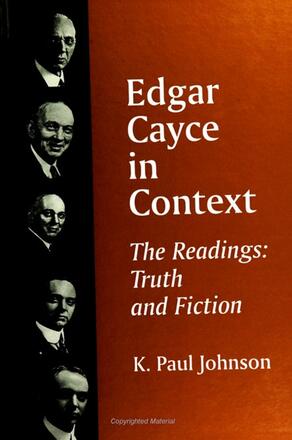
Edgar Cayce in Context
The Readings: Truth and Fiction
Alternative formats available from:
Places the work of Edgar Cayce in historical context and assesses the validity of his “readings.”
Description
Edgar Cayce, widely acclaimed clairvoyant and forerunner of the holistic health movement, is revealed here as a pivotal figure in the transition from the esoteric and metaphysical movements of the late nineteenth century to the New Age movement.This book describes and evaluates his psychic "readings," more than 14,000 trance discourses that address medical, theological, historical, and psychological concerns raised by thousands of inquirers. The author evaluates evidence for and against Cayce's reliability in the subject areas emphasized by the readings. Cayce's medical and psychological advice is shown to be well ahead of his time in many respects, and his spiritual teachings are appraised as a reconciliation of Protestant mysticism with New Thought and Theosophy.
Although the medical readings provide intriguing evidence for Cayce's ESP, his clairvoyant time travel illustrates the fallibility of information derived through hypnotic trance. The author contends that the contents of the readings reflect the knowledge and interests of their recipients as much as Cayce's personal opinions and beliefs. This is the first book to focus solely on appraising the entire body of the Cayce readings from a scholarly perspective.
K. Paul Johnson is the author of The Masters Revealed: Madame Blavatsky and the Myth of the Great White Lodge and Initiates of Theosophical Masters, both published by SUNY Press.
Reviews
"Edgar Cayce is caught between uncritical admirers and dogmatic skeptics. The scholarly world will benefit from this knowledgeable and even-handed treatment of Cayce. Johnson gives effective critiques of Cayce's thought as well as an in-depth exposition of it." — James Burnell Robinson, University of Northern Iowa